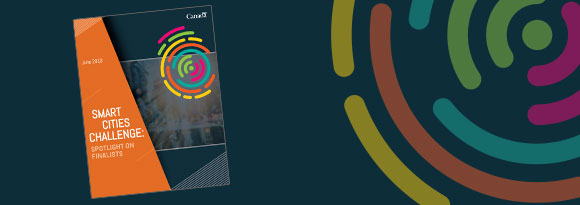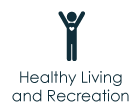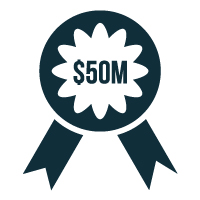Waterloo Region, Ontario
This page has been archived on the Web
Information identified as archived is provided for reference, research or recordkeeping purposes. It is not subject to the Government of Canada Web Standards and has not been altered or updated since it was archived.
The first round of the Smart Cities Challenge is closed. The Government of Canada announced the four winners (City of Montréal, Québec; Nunavut Communities, Nunavut; City of Guelph and County of Wellington, Ontario; and Town of Bridgewater, Nova Scotia) on May 14, 2019.

Executive Summary
- PDF Version (212.09 KB)
- HTML Version
"Old problems need fresh solutions, and that's why listening and co-creating with youth is so important."
– Meena Waseem, age 17, SWR Youth Advisory Committee
"Our partners, our residents, our children and youth are ready to transform Waterloo Region into THE best community in Canada for kids."
– finalist video
Challenge Statement
We will become the benchmark community in Canada for child and youth wellbeing by using early intervention, youth engagement and a connected-community framework to create adaptive, data-driven programs and scalable learning technologies that improve early child development, mental health and high school graduation rates.
Summary
We have selected Healthy Children and Youth as our smart cities challenge area. Based on data and community consultation, we have identified six priority areas of focus that will address through our smart cities initiative: early child development; mental health; bullying; literacy rates; high school graduation rates; and youth sense of belonging. Working with our local youth and community partners from the private, not-for-profit, educational and government sectors, we will develop connected community spaces, broader education platforms and technology-based programing that supports equity, mentorship, volunteering, mental health, food security and nutrition and STEAM learning.
In partnership with UNICEF Canada and their One Youth Initiative, we will build Canada's first real-time child and youth wellbeing dashboard. Using a community-based data platform that connects data from multiple organizations, we will create a framework that measures child and youth wellbeing in Waterloo Region against UNICEF's Canada's Child and Youth Wellbeing Index. Together, we will work with UNICEF Canada to scale this framework to communities of all sizes across the country helping to make Canada the number one country in the world for child and youth wellbeing over the next decade.

Spotlight on Finalists:
Waterloo Region, Ontario
Population: 535,154
Focus Areas:


Prize Category:

#smartcitiesCanada
The Jury's Perspective
Read the transcript
Hi, my name is Maayan Ziv and I am the founder of Access Now based in Toronto, Ontario.
I was really excited to be offered the opportunity to act as a jury member for the "Smart Cities Challenge" because I think it's a really unique and innovative way to engage public citizens on the future of their own cities. Providing an opportunity to engage in discussions about the innovative technologies that are available in the future of what they might look like to actually better the lives of people everywhere across the country is just so exciting: using data, using different automative vehicle opportunities or crowd-sourcing components to look at things like health care, transportation, well-being, inclusiveness, empowerment – incredible themes that we saw across the board. So I was just really excited to get involved in and learn about what people across the country were talking about, what is important to Canadians, and where are we going, what is the future of our smart cities?
I was really excited about the Waterloo application because it sets a very ambitious goal. Setting the benchmark in Canada for child and youth well-being is one of the most important things that we can look at across Canada. I think that Waterloo has looked at some really exciting projects to test out, including, you know, the improvement of mental health, digital literacy, a sense of belonging, high school graduate retention rates. These are some of the things that they heard from their engagement process with young people and I thought the inclusive approach to engagement, to look at a diversity of perspectives that informs the decision to look at this important cause was just really, really exceptional for across Canada.
The Finalist's Perspective
Read the transcript
The smart cities challenge is a competition that called in Canadian communities to explore how data and connected technology can achieve meaningful outcomes for residence.
On screen:
Smart Cities Challenge
Winning communities
School
The finalists
$50M category: Waterloo Region, Ontario
Tell us about your team and your community
Alison Pearson (Manager, Community Engagement and Planning for the Children and Youth Planning Table of Waterloo Region): Our core project team is made up of four individuals dedicated to the work and were there to bring together the efforts of many in our community. It's all about community collaboration for us than other region. So, our team is there bringing together our 8 municipalities as well as many service providers organizations working with children's needs and families every day, the community at large that play a central role in making sure this project is a success and of course, the youth. The children and youth in our community who we want to have front and center to this work and having their voices lead the way.
On screen: Why did you enter the challenge?
Alison Pearson (Manager, Community Engagement and Planning for the Children and Youth Planning Table of Waterloo Region): So, the smart cities opportunity was a natural one for us to pursue. In our community, the idea of child and youth well-being is something that's been of importance to many and it was an opportunity to take it to the next level, to leverage new conversations, new partnerships and new ways of bringing it in to the fore front in our community. We've been working hard to take an opportunity to bring youth front and center to this work and we saw smart cities as an opportunity to do that.
On screen: Challenge statement: We will become the benchmark community in Canada for child and youth wellbeing by using early intervention, youth engagement and a connected-community framework to create adaptive, data-driven programs and scalable learning technologies that improve early child development, mental health and high school graduation rates.
Join the conversation: #smartcitiesChallenge
Infrastructure Canada
- Date modified: